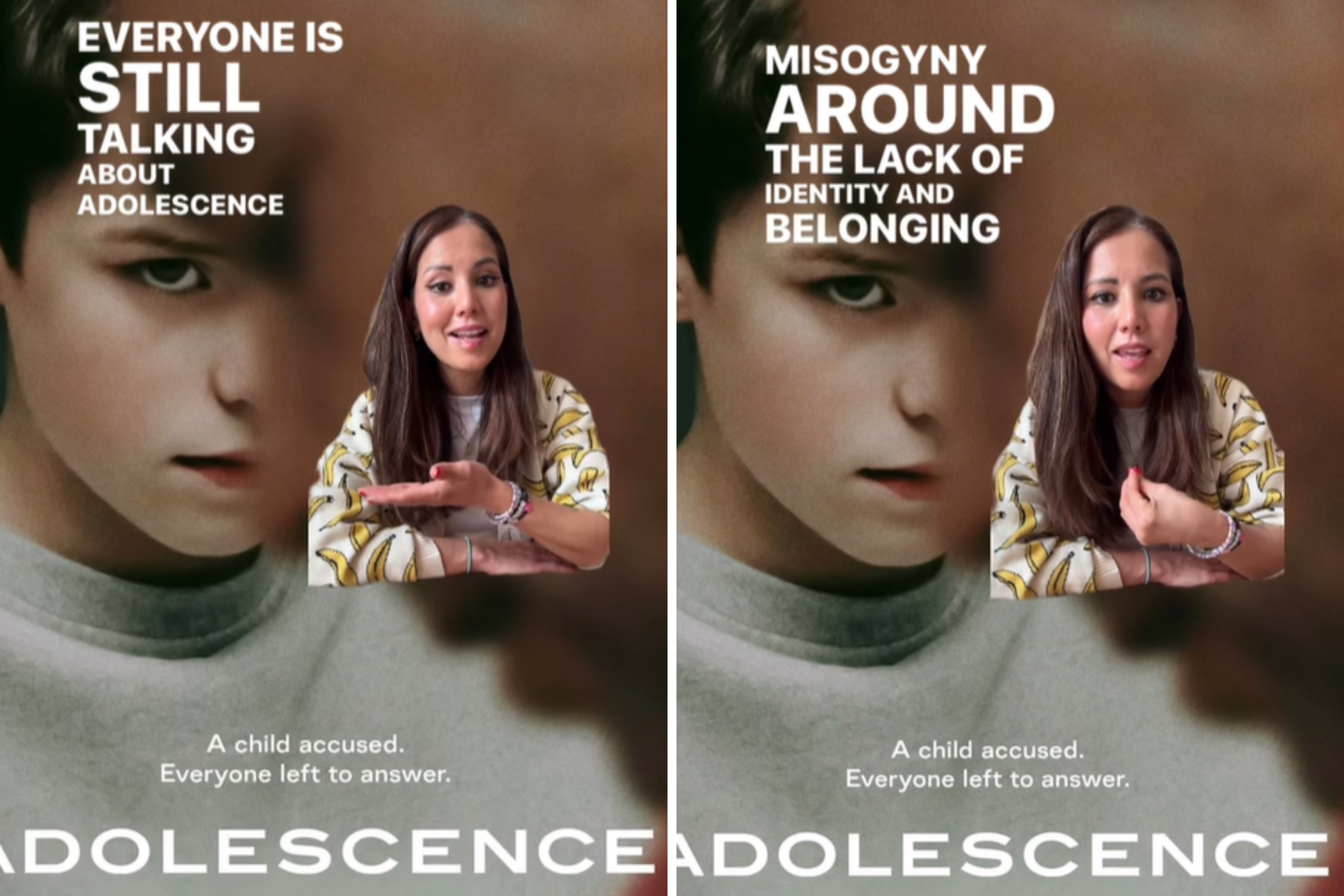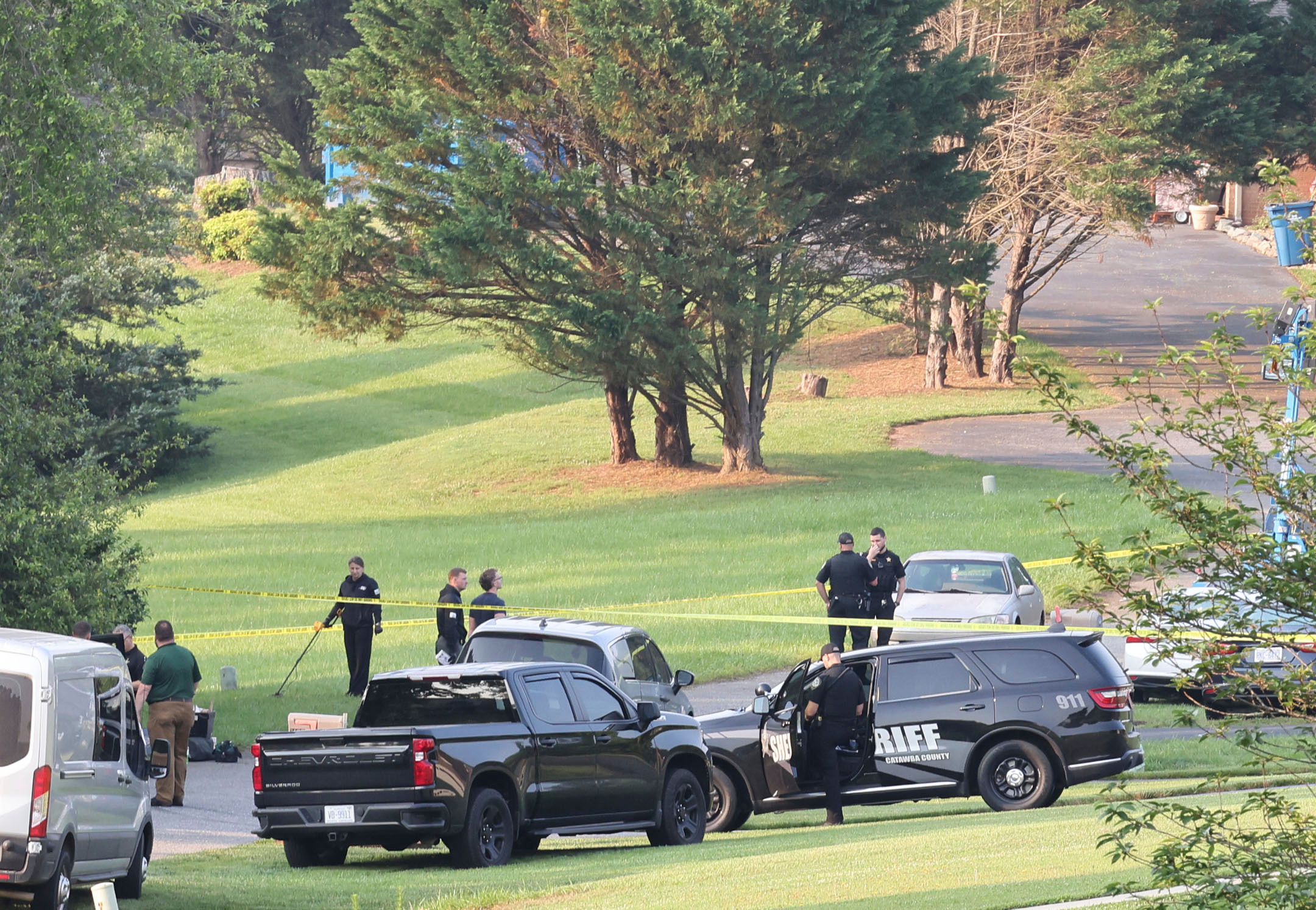
Netflix’s breakout series Adolescence has captivated audiences across the world with its unsettling portrayal of modern teenage life.
The U.K.-based four-part series sparked powerful conversations around misogyny, male identity, intergenerational trauma and the responsibilities of schools in shaping young minds.
But, according to clinical psychologist Dr. Martha Deiros Collado, there is a crucial element missing from the public discourse—and from the show itself.

@dr.martha.psychologist
In a reel on Instagram, Dr. Martha (@dr.martha.psychologist), praised Adolescence for its bold storytelling but highlighted a glaring omission that stopped her in her tracks.
“It’s a show about misogyny that is also misogynistic,” Dr. Martha said. “Katie, who gets murdered, is never talked about. We never hear about the impact this murder has on her family. We just about notice that it has an impact on her friends, but not the impact that it has across the school on girls. There is one girl that we see crying at her grave, and that’s it.”
Dr. Martha, who is also the bestselling author of How to Be the Grown Up, said this absence isn’t just a narrative oversight—it reflects a deeper societal problem.
“The antidote to misogyny is empathy, and until young boys see women as people, we will never move from this. Katie in this show is just an object,” she said.
Newsweek spoke to Elika Dadsetan, the CEO and executive director at VISIONS Inc.
In her work with schools, families and organizations, Dadsetan said she sees firsthand how toxic masculinity and the manosphere infiltrate the lives of boys, often disguised as empowerment, but rooted in fear, shame and disconnection.
“The most-dangerous messages boys absorb aren’t always loud—they’re quiet expectations to suppress feeling, dominate others and never show vulnerability,” Dadsetan said. “That silence creates isolation, and that isolation becomes a breeding ground for toxic ideologies.”
Dr. Martha’s reel had been viewed over 61,000 times at the time of writing and garnered a mixed response online. While many agreed with her evaluation, others explored the idea that the storyline didn’t focus on Katie intentionally.
“I think you’re 100% spot on but do you think that this was intentional? I wonder if the writers wanted to make a point about misogyny in the same way we see the other female characters experience being overlooked or dismissed or objectified?” one user wrote.
Another user pointed out that viewers are used to seeing the impact of grief and trauma on families.
“What we’re less familiar with—and what the show seems to be highlighting—is how a sweet, ordinary boy can be failed so profoundly by the people and systems around him that he ends up committing something unthinkable. It’s not about excusing him, but about showing how responsibility was diffused until it was too late,” they wrote.
Dadsetan said the manosphere often provides a sense of belonging and identity for boys, but it can be harmful as it promotes toxic masculinity and suppresses vulnerability.
Parents can counter this by creating a home environment where all aspects of a child’s identity are embraced.
“Boys need to know that strength includes softness, leadership includes listening, and masculinity doesn’t have to mean domination,” Dadsetan said. “They need models of care, accountability, and community from the adults around them.”
Newsweek reached out to Netflix via its Press Center for comment.





